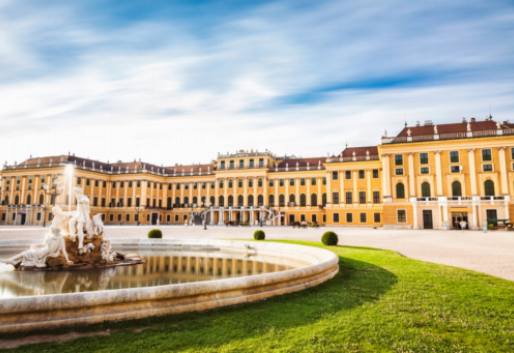Vienna's historic cafés have long been a hub for creativity, intellectual exchange, and social gatherings. From famous writers and artists to political thinkers and revolutionaries, these coffeehouses have played a significant role in shaping the cultural landscape of the city. The elegant architecture and design of these establishments provide a unique backdrop for stimulating conversations and artistic inspiration. Dive into the rich history of Vienna's coffeehouse culture and discover how these iconic establishments have influenced the city's intellectual scene, society, and politics.

Famous Writers and Artists Who Frequented Vienna's Cafés
Vienna's historic cafés have been frequented by some of the most famous writers and artists in history. The likes of Sigmund Freud, Franz Kafka, and Arthur Schnitzler could often be found sipping coffee and discussing their latest works in these elegant establishments. Artists such as Gustav Klimt and Egon Schiele also found inspiration in Vienna's cafés, meeting with fellow creatives to share ideas and collaborate on projects. The intellectual and creative energy of these spaces drew in some of the greatest minds of the time, leaving a lasting legacy on Vienna's cultural scene.
The Architecture and Design of Vienna's Historic Cafés
Vienna's historic cafés are renowned not only for their rich cultural history and intellectual legacy, but also for their stunning architecture and design. From opulent marble columns to ornate chandeliers, these cafés offer a glimpse into the grandeur and elegance of a bygone era.
Many of Vienna's historic cafés feature luxurious interiors that reflect the city's rich artistic and architectural heritage. Intricate moldings, elaborate frescoes, and lavish furnishings transport visitors back to a time when coffeehouses were vibrant centers of intellectual and artistic activity.
One of the most iconic cafés in Vienna, Café Central, is housed in a magnificent 19th-century palatial building. Its grand arched ceilings, ornate stucco work, and elegant marble columns create a sense of grandeur and sophistication that has attracted famous artists and intellectuals for centuries.
Another notable café, Café Sperl, boasts a charming Belle Époque design with plush velvet seating, antique mirrors, and delicate gold accents. The café's cozy atmosphere and nostalgic ambiance make it a beloved spot for locals and tourists alike.
The design of Vienna's historic cafés not only serves as a visual feast for the eyes, but also acts as a testament to the city's cultural legacy. Each café tells a story of Vienna's rich history, from its imperial past to its vibrant artistic and intellectual scene. As visitors sip their coffee and soak in the ambiance, they become part of a tradition that has shaped Vienna's identity for generations.
How Coffeehouse Culture Shaped Vienna's Intellectual Scene
Vienna's coffeehouse culture played a significant role in shaping the city's intellectual scene. These historic cafés provided a space for writers, artists, philosophers, and thinkers to gather, exchange ideas, and engage in lively debates. The intellectual environment of Vienna's coffeehouses fostered creativity, innovation, and critical thinking, attracting some of the greatest minds of the time. The vibrant energy and intellectual stimulation found in these cafés were instrumental in defining Vienna as a cultural hub and a center of intellectual thought. The exchange of ideas and conversation that took place in these coffeehouses contributed to the rich intellectual history of Vienna and continues to influence the city's intellectual landscape to this day.
The Role of Coffeehouses in Viennese Society and Politics
The coffeehouses of Vienna have long played a significant role in shaping the city's society and politics. These establishments have served as gathering places for intellectuals, artists, and politicians, where ideas were exchanged and discussions were held. Vienna's coffeehouses have been hubs of cultural and political activity, with debates and movements often taking place within their walls. Additionally, these cafés have provided a platform for individuals to network and form connections, ultimately influencing the city's social dynamics and political landscape. Moreover, the inclusive and relaxed atmosphere of Vienna's historic cafés has allowed for people from all walks of life to come together and engage in meaningful dialogue, fostering a sense of community and unity within the city. The coffeehouses of Vienna have not only been important social institutions but also key players in the city's political arena, as they have served as meeting grounds for various groups and movements to organize and strategize. Whether discussing art, literature, or politics, Vienna's coffeehouses have remained integral to the fabric of the city's society and politics.
